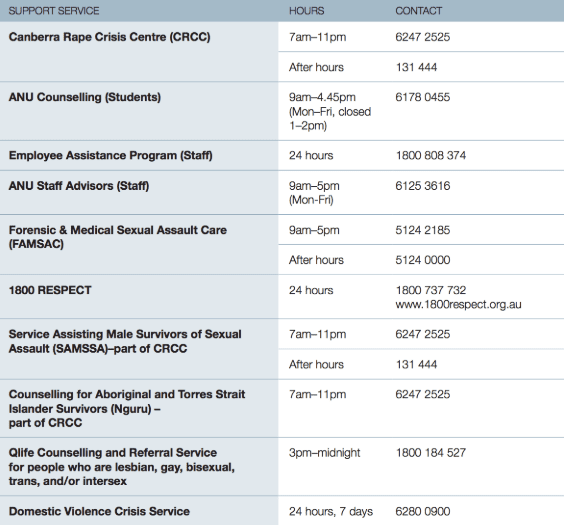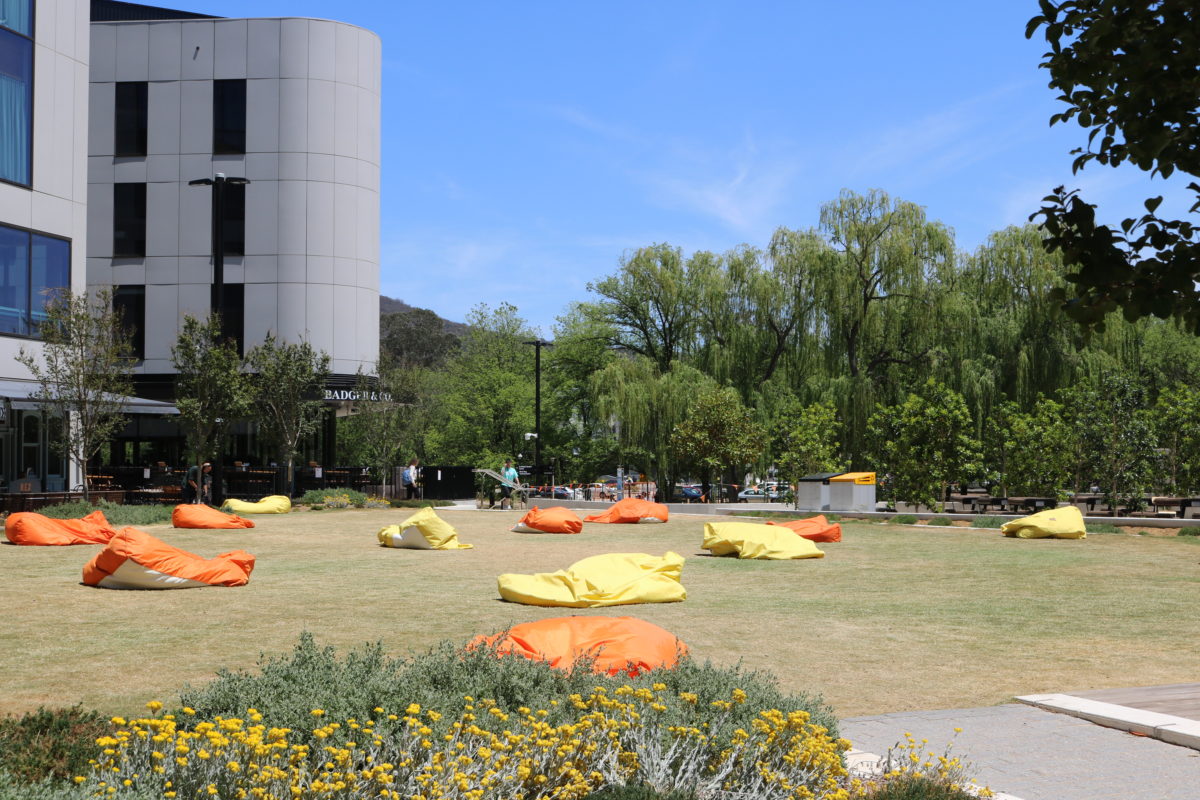Today, the ANU announced their Sexual Violence Prevention Strategy under the Respectful Relationships Unit. The announcement comes after the ANU received damning results in multiple reports focussed on sexual assault and university culture, and the 2017 Change the Course report recommendations.
Vice-Chancellor Brian Schmidt said that the results of the Change the Course report “were distressing to read,” and that they showed an “ugly truth about a toxic culture perpetrated by a few, but impacting many.”
The ANU community has been a driving force behind holding the university accountable and driving them to take action on Sexual Assault and Sexual Harassment (SASH). The Do Better ANU: Open Day Strike saw ANU colleges limiting participation in Open Day activities to bring attention to issues regarding the removal of Deputy Heads of Halls, changes to pastoral care structures, concerns around transparency, and the lack of consultation with students over key residential issues.
Further, the NOUS review indicated strong institutional problems at the ANU regarding SASH. Overall, many of the failures by residential halls stemmed from institutional inadequacies concerning the handling of SASH disclosures. The review found that of the majority-undergraduate halls, only Fenner Hall was not considered to have room for improvement. These inadequacies stemmed from inconsistent and unclear policies related to reporting and further investigation of SASH incidents.
The review also highlighted that as a result of staffing personnel and structure, residents did not feel comfortable accessing SASH services in multiple colleges. There are high levels of distrust between residential college admin and students, with the administration being perceived to protect the perpetrator at the expense of the survivor and not follow due process.
The University’s announced strategy will be implemented over three phases, spanning from 2019 to 2026. The strategy will be led by the Respectful Relationships Unit (RRU). Each phase will be supported by an accompanying ‘Rolling Action Plan’, which will be constructed in consultation with the ANU community.
The first phase of the university’s strategy (2019-2020) aims to expand upon existing prevention networks. This phase has already seen the establishment of the RRU in January, and notably intends to establish an online Sexual Misconduct Disclosure Form for anonymous disclosures. Further, this phase will facilitate the creation of a central university ‘data’ hub for disclosures and reports of sexual violence.
Phase one also aims to develop an overarching Sexual Misconduct Policy which contains “broad principles of the University’s commitment to prevent and respond appropriately and effectively to incidents of sexual violence.”
The ANU anticipates that in this phase “reporting of sexual violence may increase, as well as the levels of satisfaction with the University’s response.”
The second phase of the strategy (2020-2023) will focus on strengthening whole-of-community efforts and actions. This will involve building infrastructure and governance to develop prevention activities further. The ANU believes that women will begin to feel safer on campus, reporting will increase, and attitudes towards SASH will begin to be seen as unacceptable in the ANU community.
The third phase (2023-2026) will centre on maintaining efforts and getting results through continued innovation and increased representation in the community in prevention efforts. The ANU aims to have shifted social norms, attitudes, and behaviours completely regarding SASH. They anticipate that incidences of SASH will decrease, reducing the strain on crisis response services.
The entire sexual violence prevention strategy can be found here.
If you are feeling distressed by any of the above information, contact any of the below services for assistance.

We acknowledge the Ngunnawal and Ngambri people, who are the Traditional Custodians of the land on which Woroni, Woroni Radio and Woroni TV are created, edited, published, printed and distributed. We pay our respects to Elders past and present. We acknowledge that the name Woroni was taken from the Wadi Wadi Nation without permission, and we are striving to do better for future reconciliation.
